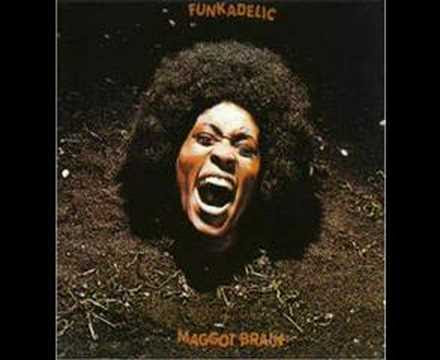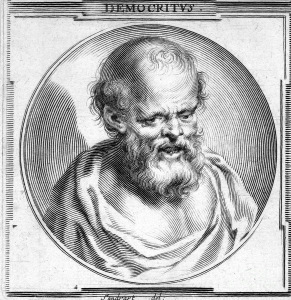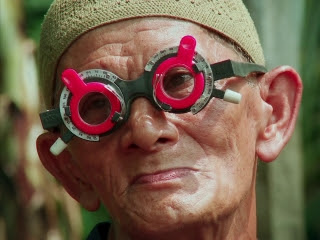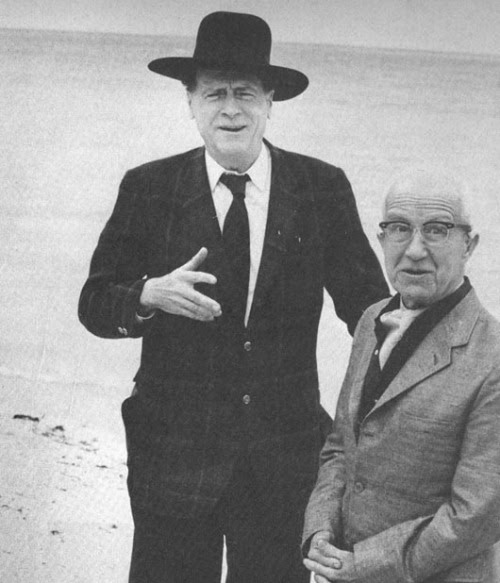Unless you are sitting in the wrong movie theater, when real bullets start to fly….or you beLIEve folks like:
Kenneth Anger: “I’ve always considered movies evil; the day cinema was invented was a black day for mankind.”
Frank Capra: “Film is a disease. When it infects your bloodstream, it takes over as the number one hormone; it bosses the enzymes; directs the pineal gland; plays Iago to your psyche. As with heroin, the antidote to film is more film.”
Werner Herzog: “It makes me into a clown. That happens to everyone. Just look at Orson Welles, or even people like Truffaut. They have become clowns. What we do as filmmakers…it’s immaterial. It’s only projection of light.”
Darren Aronofsky told Elvis Mitchell that filmmakers should become performance artists because the chemicals involved in filmmaking are destroying mother nature.
Paul Schrader’s mother told him: “The quality of the film doesn’t matter. It’s the industry that is evil.”
Director Richard Foreman wrote a play entitled Film is Evil, Radio is Good.
Joshua Oppenheimer says, “Films can’t change the society, they can simply open the space for discussion which can lead to social change and start new forms of social activism.”
As readers of this essay, we can bypass the environments created by cinema (the subliminal effects) and become environments ourselves. Chris Marker proclaimed, “If the images of the present don’t change, then change the images of the past.” Oppenheimer’s two films The Act of Killing and The Look of Silence offer revealing rejoinders to these two quotations: “Those who cannot remember the past are condemned to repeat it.” – George Santayana, and “History is a nightmare from which I am trying to awake.” – James Joyce.
The killers of Communists in Oppenheimer’s films keep repeating, “The past is past.” Aren’t all times happening now? Can we reprogram the environments of our inventions? Can we de-hypnotize ourselves and hack our own perceptions? Let us propagate the aspiration of Wyndham Lewis, “Artists live in the present and write a detailed history of the future.”
The past has seen us looking up to the screen. A theme of OtherZine 29 is in the word “surveillance,” which comes from the French phrase for “watching over” (“sur” means “from above” and “veiller” means “to watch”). McLuhan’s axiom “We shape our tools then they shape us” has now flipped into “We ape our tools, then they ape us.” That’s what films do. Remember Truffaut’s version of Bradbury’s Fahrenheit 415? The screens can watch us. What is a meta for?
We invent tools, then we imitate the hidden psychic effects of our inventions. Then the inventions seem to imitate us. Every tool is an extension of some humanness. Film editing extends our eye lids. We discern and perceive what we want to watch. That’s “Media Ecology ” – our relationship with our tool’s environments. Is perception reality? What do our inventions really do to us? How does the perceptual and conceptual understanding of relationships between user and content differ?
We are observing here with written words. Before we had any written or spoken words, the inner and the outer were not separate. ” It will be apparent that it is difficult to discern which properties each thing possesses in reality.” – Democritus (8th century CBE). How can we develop critical thinking skills minus point of view? Oppenheimer considers that his film The Look of Silence is a poem. T.S. Elliot said that poetry is outting your inner dialogue; that a poem can communicate before it is understood.
Let us approach these ephipanies in everydayness WITHOUT taking a point of view. Suspended judgement leads to flipping pattern recognition into comprehensive awareness. Does hating drones, war, fracking, film, guns, rickrolling, teenage imagery analysis, gig economy, oath keepers, and cellphones limit one from getting the big picture? Could it delay one from learning how to cope with what one does not like? I appreciate Herman Hesse’s Demian, “If you hate a person, you hate something that is a part of yourself. What isn’t part of ourselves doesn’t disturb us.” Do all inventions truly extend some humanness?
Cinema hoicks up time, space, memory, popcorn and lots more.
Like McLuhan, Oppenheimer, who often repeats Faulkner’s “The past is not even the past,” did not start the fire, he turned on the alarm. The hidden is exposed and people are talking. Oppenheimer said, “We can build better collective structures.” Can we build bigger collective solutions? His goal to “excavate layers” recalls James Joyce’s “I am boring through a mountain from two sides. The question is – how to meet in the middle?”
Like all human inventions, films have services and disservices. If we probe the hidden psychic effects, we may be able to cope with the disservices and understand its relationships. All these quotes dig deep into filmmakers’ motives and consequences. There’s high aspirations. Let’s focus on the content, and even more so – the form, which matters a lot too. Captain Beefheart quipped “The stars are matter, we are matter, but it doesn’t matter.” Consider Auden;s axiom “Poetry makes nothing happen.” OR DOES IT?
Wittgenstein argued for a primacy of muscle memory over dis-engaged neuron-firing: “How can one learn the truth by thinking? As one learns to see a face better if one draws it.” He continued:
“The aspects of things that are most important for us are hidden because of their simplicity and familiarity. (One is unable to notice something — because it is always before one’s eyes.) The real foundations of his enquiry do not strike a man at all. Unless that fact has at some time struck him. — And this means: we fail to be struck by what, once seen, is most striking and most powerful.”
“Are Movies Junk?” is the title of a 1964 Film Culture article by John Fles, who is listed as “the most important curator and theorist of underground cinema in Los Angeles in the mid 1960s” in the comprehensive book Alternative Projections: Experimental Film in Los Angeles, 1945-1980 by David E. James and Adam Hyman. In the chapter entitled “Seeing is believing” by John Fles, he proclaims “Everyone is a Participant.” The sentiment evokes Bucky Fuller “we are all crew, no passengers.” How does the collective differ from the individual’s mosaic mash-ups? Fles proclaimed “Old words keep you in old word slots. Cut your way out.”
This book contains eminent essayists divulging deep history of LA’s avant-garde, including SF’s “Red Poet” Jack Hirschman, who once told me how James Joyce’s act of cracking himself up in Finnegans Wake made an impact on him. Frank Zappa also makes himself laugh a lot in Joe’s Garage. Both Joyce and Zappa are referenced in the first few minutes of the 2015 blockbuster Mission Impossible – Rogue Nation. Is the fickled flighty frittering Android Meme manifesterbating ?
McLuhan suggested: “There’s no such thing as a good or bad film, it is a good or bad viewing.” For many years, we have looked up to the screen in a big theater. Now our posture has changed. Most people are constantly looking down at the screens of their social media devices. Our posture has literally turned into a question mark, maybe even a double-duty interrobang (an exclamation point superimposed over a question mark, sharing the dot).
John Fles starts a chapter in the book Alternative Projections with these thoughts: “Calculated confusion of the senses.” —Rimbaud and “Upsetting the equilibrium.” —Gurdjieff. Fles explores paradox and sense ratio shifting. What human activity has all five senses equally in use? Dance? Maybe? What do you think? Controlled chaos?
Oppenheimer has the tenacity to embrace contradiction. He credits the influence of Robert Bresson, who wrote, “Shooting. No part of the unexpected which is not secretly expected by you.”
He has the courage to admit that there were times he was laughing during the making of his films. He told us this at the University of Southern California Q&A session, when a student asked him about his reactions to hearing audience members laughing. More Gurdjieff–“Laughter is the reconciliation of ‘yes’ and ‘no’.”
Are we all capable of doing evil? How do we deal with the evil that we have done? Gregory Bateson’s double-bind theory lies in the statement: “Pay no attention that I am lying to you.” That “you” may be yourself. It is literally possible to turn a weakness into a strength, a breakdown into a breakthrough, a rejection into a redirection. Does reform work? Bateson questioned the effectiveness of punishment. Ken Wilber delves deep into duality:
“The existence of evil was taken as a type of proof for the existence of Goodness. Evil, it was thought, was not an actual substance or a real existent; it was simply a shadow; but all shadows are cast by Light, the Light of descending Goodness, in this case. The point was much like Vedanta: manifestation is dualistic, both good and evil come into being as correlative polarities, and you can’t have one without the the other. This was the basis of the famous ‘optimism’ of the seventeenth/eighteenth century, and it meant you can get rid of evil; then it meant, you can never get rid of evil, and therefore this is the best world that could actually be constructed (that is, this is the best of the actually possible worlds). What the Descenders lacked was the other half of the equation, the noonday view: both good and evil can be transcended.”
On what occasion do you lie? Oppenheimer said, “The human capacity for evil depends entirely on our ability to lie to ourselves.” He also recounted: “Primo Levi said of the Holocaust, there may be monsters out there, but they are too few to worry about. I refuse to comfort myself with the moral lie that these men have done something monstrous, and consequently are monsters, and therefore I am not like them.” Oppenheimer challenges Bob Goldthwait’s maxim “You are what you hate.”
I am not trying to make you see álá “The task I’m trying to achieve is above all to make you see.” —D.W. Griffith. Hail the heuristic. Double the double fake. “Exactness is fake.” —Alfred North Whitehead.
I am begging you to explore, not explain. Pull the wool over your own eyes. Shut off tools (for a short while). Hack your own perceptions. MEDIA FAST. TURN off film, spoken word, cars, online film magazines, computers, buzzfeeds, Super PACs, disambiguous luminosity, singularity, AI. Cancel your MAD magazine subscription. Even just for a day. Cleanse yourselves of both their services and disservices.
If we do without any invention for any amount of time, what happens? The key is to DISCUSS the results without the tool. Uncover the subliminal effects and learn to cope with them.
Here is an example of what I am not trying to say:
Joshua Oppenheimer’s words (and films) evoke McLuhan, Tony Conrad, and Duchamp: “In that sense the role of the artist is to be like the child in The Empire’s New Clothes, pointing out a reality that everybody knew about, but was too afraid to talk about, too afraid perhaps to remember.” McLuhan asked why do we still ignore the hidden effects even if the artists are revealing them? Conrad said that the role of the artist is to break the rules that have not even been made yet. Duchamp nails it with “the artist of the future will only have to point.” Our final benediction may be Jimmie Joyce recalling that we must “Remember to forget.”
“To articulate the past historically does not mean to recognize it ‘the way it really was’ (Ranke). It means to seize hold of a memory as it flashes up at a moment of danger.” —Walter Benjamin.
We must understand the relationship of the hidden effects of our inventions. Tools like film and words have disservices that we can cope with. The words “surveillance,” “past,” “memory,” and “evil” are symbols of something deeper that might not be able to be explained completely.
These following Robert Dobbs‘ words apply:
“Objects are unobservable. Only relationships among objects are observable. So if you think that the question, ‘Will we ever learn?’, implies a goal, a particular point and time we will arrive at, a particular object, we will never know that because objects like that do not exist, only relationships among objects exist. It is like asking, ‘Will there ever be silence?’ It’s like, ‘Will you ever die?’ Well, you’ll never know because to be dead is a specific experience that seems to imply isolation which could not be known. Because nothing exists in isolation, you will never experience death. You will only experience those things that involve relationships. The end point of time, death, cannot be experienced because it’s not a relationship among events.”
George Clinton’s doctor told him that IF HE STOPS SMOKING CRACK, he will die. Welly, well, well, that was about ten years ago. That illustrates what all our inventions do. We become addicted to them and THEIR HIDDEN PSYCHIC EFFECTS. Spoken word is the most universal, addicting DRUG. If we stop any of these tools, we practically die. If you stop talking for a day, you freak out. If you fast from film, from cellphones, from READING, you will …well, lets just say…it is all about coping with what you do not like about our inventions. (After 29 years, George did stop crack and HE LIVES ON. Unlike Jerry Garcia and Bela Lugosi, who both died trying to kick junk.) Addicts beware? Let’s cope with the subliminal effects and CARRY ON…
The word “hidden” may be better explored here: “Something had happened which was not noticed by any one, but which was much more important than all that had been exposed to view.” — Leo Tolstoy
Here’s more jumping off points:
McLuhan’s Global Village Today: An Introduction – Carmen Birkle, Angela Krewani and Martin Kuester.
The Point of Being by Derrick de Kerckhove and Cristina Miranda de Almeida
The School of Public Life by Fred Dewey (“The rise of cinema echoed the rise of … global, uprooting of people and world.”).
Beyond the Dream Syndicate: Tony Conrad and the Arts after Cage by Branden W. Joseph.
The Essential Mae Brussell – Investigating Fascism in America edited by Alex Constantine.
Brothas Be, Yo Like George, Ain’t That Funkin’ Kinda Hard on You? by George Clinton with Ben Greenman.
You don’t need your Virtual Reality headset. Just listen to Maggot Brain by Funkadelic as you read this final part. ‘Member ol’skool Baldwin Basement wif da artwork of this album prominently displayed next to Craig’s sacred 16mm projector… nappy fro screaming psychedelic synthesia… staring ya’ll in deface …another brother other cinema…we are da mutha people…frobama paints the white house black?…free your film and your funky ass mind will follow…
Still coming, George Clinton…In 1995, I did one of the longest interviews ever with Funk Maestro George Clinton entitled “I’m Coming” which was his response to the question “If you were on the last televised moment in the history of the world, what would you say?” Here it is nearly two decades later and George is still coming. This time, it is with a book, Brothas Be Like, Yo, George, Ain’t That Funkin’ Kinda Hard On You? With this Real Mutha Fo Ya MaMa Feasta (translation – a real muthafuckin manifesto for you) he be still leakin’ all over the curb, knee-deep in the swamp muck. In fact, the song with the same title, goes “Brothas be like, ‘Yo, George, ain’t that funkin’ kinda hard on you?’ / I was hard when I started, gonna be hard when I get through.”
George is still going strong, silly seriously. Born in 1941, he be throwing down naughty but nice music for nearly six decades. Jon Pareles described it well in the New York Times: “Mr. Clinton expanded funk from a rhythm to a philosophy. His funk found liberation in carnal pleasures and rebellion in humor.” Phunky philosophies permeate this very readable memoir and proves he still has a “few more years of hangability.” Phew, P-you.
As George proclaims, “Crazy is a prerequisite. You can design your own crazy. You are in charge of it.” The book renders his comprehensive craze and deft awareness of songwriting, hairdressing, marketing, studio production, arranging, management, shamanism, jocularity, bandleading, wittiness, politricks, humor, drugs, loudness, vocal harmonies, doo-wop, wardrobes, psychedelic jazz and dancing. Did I say the function of music is to dance? Does PFunk nurture booty shaking to the max? The bomb? You will understand the relationships of the mind body re-connections if you read this book, which duly propagates their axiom “Free your ass and your mind will follow.” Are we just a biological speculation, sittin’ here vibratin’?
George proclaims that he is attracted to music that bugs the shit out of him. He wants to pursue why this is so. He evokes John Cage’s “I have nothing to say and I am saying it” with “My thing was, ‘Think! It ain’t illegal yet!’ My job was to make you think about it! I ain’t got no point of telling you how it is—so long as myself, I don’t think I know!” It jes grew. He played the dozens and continues to expand our souls, hearts and minds.
He claims he does not know, yet he still searches. In the liner notes of the Funkadelic 1981 album The Electric Spanking of War Babies, Clinton recommends the book Trilateralism: The Trilateral Commission and Elite Planning for World Management (1980) by Holly Sklar. That’s some deep knowledge to lay on rock’n’rollers.
Sisters and Brothers, can you paradigm?
“You can’t convince a believer of anything; for their belief is not based on evidence, it’s based on a deep seated need to beLIEve.” —Carl Sagan
“I am part Communist and part Fascist with a healthy dose of Monarchism in my Marxism, but at bottom an Anarchist with a passion for order.” —Wyndham Lewis circa 1929
More Gerry Fialka content:
https://archive.org/search.php?query=fialka
http://www.laughtears.com/GinMICHandNM2014.html (search the page for Oppenheimer)
COMMENTS and NOTES on the ARTICLE (from Gerry Fialka)
From Walter Alter:
From Matt Collins:
Comment 1:”As readers of this essay, we can bypass the environments created by cinema (the subliminal effects) and become environments ourselves.” – Gerry Fialka
It took me a few minutes to understand what you were getting at here, but this is how I parse it: In the act of reading the essay – that is, participating in an analytic dialog about a film, one assumes the capacity to bypass the mental and pscyho-social environments created by intentional acts of cinema. Because the cinema’s formal qualities are a uni-directional, dictatorial mode, when one simply consumes a film one is consumed by its psychic environment, so to speak. But by reflecting on these formal abilities and limits of the medium utilizing analytic tools, films become resources for an individual mind and/or a group mind/culture. In the sense that an environment is the totality of a medium’s effect, by reading this essay you have just become environments unto yourselves.We each as individuals transcend the limits of our mental landscape first by turning a lens on that landscape. And then in a second order of remove, we transcend our own limits again by also considering the nature of the lens through which we recognize the object qualities of the landscape, that is, considering our own formal abilities and limits. This enables us to recognize ourselves as internalized, derivative landscapes, which are cumulatively the products of mapping the first source landscapes. It is as if the tyrannies of first nature and of second nature can be stripped of their oppressive, dictatorial force in the act of studying and becoming aware of them.
Comment 2:
From the essay – “How does the perceptual and conceptual understanding of relationships between user and content differ?”
Another wording could be – How do the perceptual and the conceptual understandings of a user differ from the understandings imparted by content?
Comment 3:
I would like to expand on the rejection of a point of view proposed in the essay:
Pattern recognition is how we reconcile the forms we encounter in the world. Suspending judgement flips the switch of pattern recognition from prioritizing-hierarchies-in-terms-of-self into a-focus-on-comprehensive-awareness. The first is the down position of the switch relating to survival instinct and status relations; the latter is the up position relating to transcendance and universality. Removing the assumption of personal taste, personal gain, persona impact, et al., an observer enables herself to improve her awareness of the whole, of the nature of things as they are, and to reach for a greater wisdom that can elevate not only herself but all of her peers in kind. Not only does suspention of judgement enable an observer to become immersed more intimately with an object of art, but it enables a broader intimacy. In this sense, concerns with one’s “opinion” of a thing are the first step toward isolation and oppression – not simply from the art, but also from the world at large.
Comment 4:
I love that George Santayana quote from The Life of Reason, 1905, Reason in Common Sense. The quote in its entirety is at least as wonderful and worth reproducing whole. (It is appropriate to forgive Santayana’s cultural misunderstanding in his use of the word “savage,” and to recognize that it is not merely a synonym for “native/archaic/tribal,” but rather a fine-enough stand-in for “contemporary consumer of entertainment,” the type who are ultimately even less aware than the people of pre-agricultural societies.
In full:
As Slavoj Žižek says: “Cinema is the ultimate pervert art. It doesn’t give you what you desire – it tells you how to desire.




This story makes me think of director Gus Van Sant who proclaimed once that filmmaking devastated his life.
I’ve been to some of Gerry’s funky ass events and been happily devastated similarly. Here’s a couple to take yourself to for that fun feeling he’ll bring up from Venice Beach:
Sept 18th at 8pm he interviews poet Ruth Weiss https://en.wikipedia.org/wiki/Ruth_weiss at http://oddballfilms.blogspot.com/
Also Sept 21st 7PM, check out “FILM CAN’T KILL YOU BUT WHY TAKE A CHANCE” – films and fiery discussion FOR FREE! at New Nothing, 16 Sherman Street (off Folsom between 6th and 7th) SF.
wish I were there,
hank rosenfeld (.com y’all!) here
Appreciation to my father who told me concerning this web site, this
website is in fact remarkable.